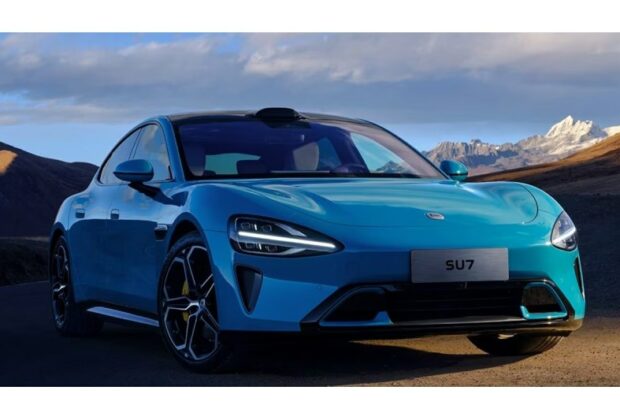The Chinese smartphone manufacturer Xiaomi is warning prospective customers that there may be a seven-month wait before receiving their new SU7 sedan. This indicates that there is a high demand for an electric vehicle that directly competes with the Tesla Model 3.
Xiaomi began accepting orders for its SU7 car last Thursday, following the announcement of competitive pricing that began at $29,870. According to the firm, pre-orders hit around 90,000 in the first day on Friday.
Potential customers have been alerted by Xiaomi’s vehicle app this morning that the new SU7 and SU7 Pro may take 18 to 21 weeks to arrive. It would take 27 to 30 weeks to receive the most costly variant, the AWD SU7 Max, which costs 299,900 yuan (about $41,500).
Additionally, Xiaomi unveiled the Founder’s Edition, a limited-edition model with additional features including an add-on mini-fridge. According to reports, the first batch of 5,000 of them sold out right away on Thursday. Cofounder and CEO Lei Jun announced on Weibo on Sunday that there will be another batch of the Founder’s Edition edition available, however he did not say when or how many will be available.
Impressive specifications for the SU7 Standard option include a 73.6 kWh battery with a range of 700 km (435 miles), while the Pro has a 94.3 kWh battery with a range of 830 km (516 miles). The cost of the Pro is RMB 245,900, or $34,000.
A head-up display, Pilot Pro ADAS with vision (Pilot Max with vision and LiDAR on the top two trims), and a Dolby Atmos sound system (Max trim) are among the other cutting-edge technologies that come standard with the SU7. With a car that costs the same as the entry-level Model 3 in China but has far superior specifications, Xiaomi is taking aim at Tesla with this one.
The Chinese electronics behemoth is embarking on bold new endeavors with the SU7, and its billionaire cofounder Jun has big plans. In 15 to 20 years, he promises to lead the global auto industry and create a “dream car” that can compete with Tesla and Porsche. He also mentioned that the business intends to invest $10 billion to disrupt the market, just like it did with smartphones ten years ago, at the vehicle’s debut event in December.
China is the largest automobile market in the world, and since the firm originally announced its plan to enter the EV market in 2021, the regulatory environment in China has undergone substantial changes. Xiaomi is now building its electric vehicles in collaboration with Beijing Automotive Holding Group, a state-owned company, as a result of the government’s strict enforcement of manufacturing permits for new entrants.
Additionally, Xiaomi is entering a very competitive and densely populated industry in China, where hundreds of new models from dozens of brands—led by the dominant BYD—have already entered the market.








